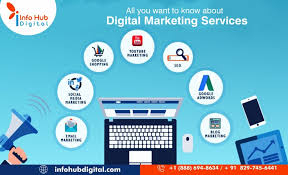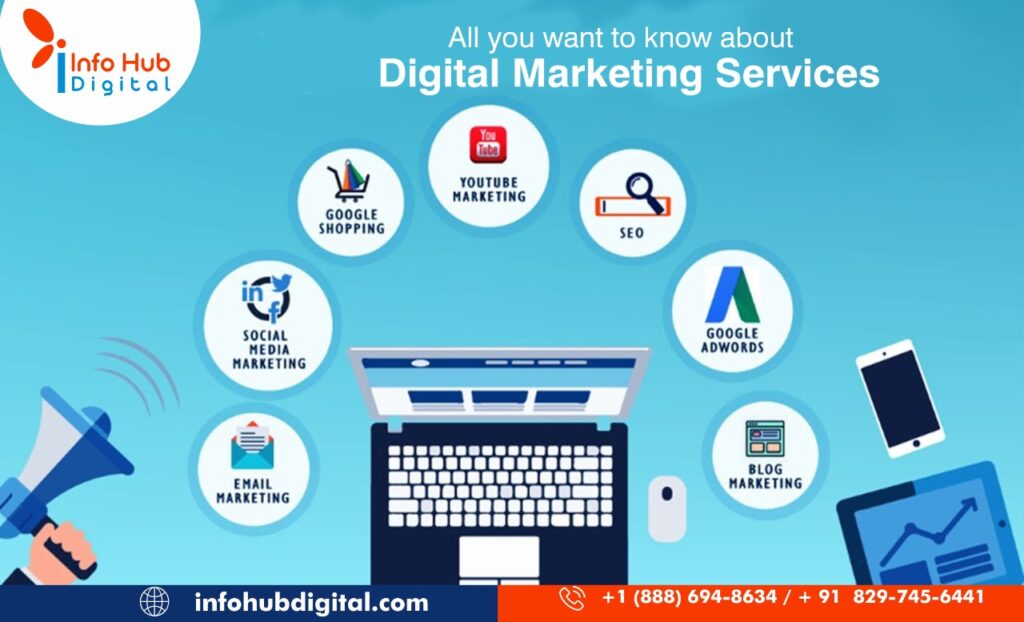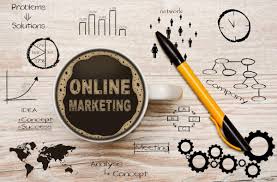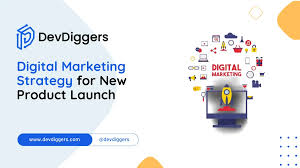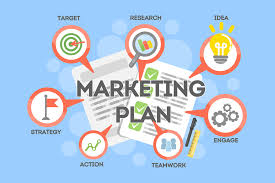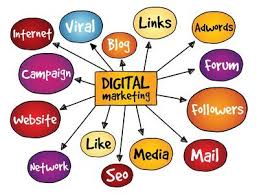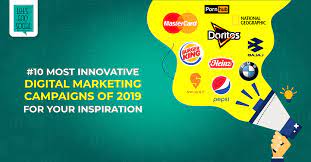The Power of Internet Marketing Services Companies in Driving Online Success
In today’s digital age, having a strong online presence is essential for businesses looking to reach their target audience and drive growth. This is where internet marketing services companies play a crucial role in helping businesses navigate the complex world of digital marketing.
Internet marketing services companies offer a range of solutions designed to enhance a company’s online visibility, attract more customers, and ultimately increase revenue. From search engine optimization (SEO) and pay-per-click (PPC) advertising to social media marketing and content creation, these companies provide the expertise and resources needed to succeed in the competitive online landscape.
The Benefits of Partnering with an Internet Marketing Services Company
Expertise: Internet marketing services companies employ professionals with in-depth knowledge of digital marketing strategies and techniques. By leveraging their expertise, businesses can benefit from effective campaigns tailored to their specific goals.
Efficiency: Outsourcing internet marketing services allows businesses to focus on their core operations while experts handle the intricacies of online promotion. This leads to greater efficiency and better use of resources.
Data-Driven Approach: Internet marketing services companies utilise data analytics to track the performance of campaigns and make informed decisions for continuous improvement. This data-driven approach ensures that strategies are constantly refined for optimal results.
Choosing the Right Internet Marketing Services Company
When selecting an internet marketing services company, it is essential to consider factors such as experience, reputation, and service offerings. A reputable company will have a proven track record of delivering successful campaigns for clients across various industries.
Additionally, businesses should look for a company that offers customised solutions tailored to their specific needs and goals. Effective communication, transparency, and a collaborative approach are also key factors in establishing a successful partnership with an internet marketing services company.
In Conclusion
Internet marketing services companies play a vital role in helping businesses thrive in the digital landscape. By leveraging their expertise and resources, businesses can enhance their online presence, engage with their target audience effectively, and achieve sustainable growth in the competitive online market.
Partnering with the right internet marketing services company can be a game-changer for businesses looking to maximise their online potential and stay ahead of the competition in today’s digital world.
9 Advantages of Partnering with an Internet Marketing Services Company
- Expertise in digital marketing strategies
- Access to specialised tools and technologies
- Cost-effective compared to hiring an in-house team
- Customised solutions tailored to business needs
- Data-driven approach for campaign optimization
- Increased online visibility and brand awareness
- Ability to reach a targeted audience effectively
- Continuous monitoring and analysis of campaign performance
- Opportunity for businesses to focus on core operations
Challenges of Internet Marketing Services: Costs, Communication, and Privacy Issues
- Costly
- Potential for Miscommunication
- Dependency on Third-Party Expertise
- Risk of Overpromising Results
- Privacy Concerns
Expertise in digital marketing strategies
Having access to expertise in digital marketing strategies is a significant advantage of partnering with an internet marketing services company. These professionals possess in-depth knowledge and experience in the latest trends and techniques in digital marketing. By leveraging their expertise, businesses can benefit from tailored strategies that are designed to maximise online visibility, attract target audiences, and drive meaningful results. Expertise in digital marketing strategies allows companies to stay ahead of the curve and navigate the ever-evolving digital landscape with confidence and precision.
Access to specialised tools and technologies
One significant advantage of partnering with an internet marketing services company is gaining access to specialised tools and technologies that can significantly enhance the effectiveness of digital marketing campaigns. These advanced tools, ranging from analytics platforms to automation software, allow businesses to gather valuable insights, streamline processes, and measure the performance of their online initiatives with precision. By harnessing these cutting-edge technologies, businesses can stay ahead of the curve and achieve greater success in reaching their target audience and driving conversions in the competitive online landscape.
Cost-effective compared to hiring an in-house team
One significant advantage of partnering with an internet marketing services company is the cost-effectiveness it offers compared to hiring an in-house team. By outsourcing digital marketing efforts to a specialised agency, businesses can avoid the expenses associated with recruiting, training, and maintaining a full-time marketing team. Internet marketing services companies provide access to a diverse range of expertise and resources at a fraction of the cost, allowing businesses to maximise their budget and achieve impactful results without the overhead costs of an in-house team.
Customised solutions tailored to business needs
One significant advantage of partnering with an internet marketing services company is the provision of customised solutions tailored to meet the specific needs and goals of a business. By understanding the unique challenges and objectives of each client, these companies can develop bespoke strategies that address key areas for growth and success. This personalised approach ensures that businesses receive targeted solutions that align with their brand identity, target audience, and overall marketing objectives, leading to more effective and impactful results in the competitive online landscape.
Data-driven approach for campaign optimization
One significant advantage of partnering with an internet marketing services company is their data-driven approach for campaign optimization. By utilising advanced analytics and tracking tools, these companies can gather valuable insights into the performance of online campaigns. This data-driven approach allows for continuous monitoring and analysis, enabling adjustments to be made in real-time to maximise effectiveness and ROI. By leveraging data to inform decision-making, businesses can refine their strategies, target the right audience more effectively, and ultimately achieve better results in their digital marketing efforts.
Increased online visibility and brand awareness
One significant advantage of partnering with an internet marketing services company is the ability to boost online visibility and enhance brand awareness. Through strategic digital marketing efforts such as search engine optimisation (SEO), social media marketing, and content creation, these companies can help businesses reach a wider audience and establish a strong online presence. By increasing visibility across various online platforms, businesses can attract more potential customers, build credibility, and strengthen brand recognition in the competitive digital landscape. This heightened brand awareness can lead to improved customer engagement, increased website traffic, and ultimately drive business growth and success.
Ability to reach a targeted audience effectively
One significant advantage of partnering with an internet marketing services company is its ability to reach a targeted audience effectively. Through sophisticated targeting techniques and data-driven strategies, these companies can identify and engage with specific demographics, interests, and behaviours of potential customers. By tailoring marketing campaigns to resonate with the target audience, businesses can achieve higher conversion rates, increased brand awareness, and ultimately drive growth in a cost-effective manner. This precision in targeting ensures that marketing efforts are focused on those most likely to be interested in the products or services offered, leading to more meaningful interactions and better results overall.
Continuous monitoring and analysis of campaign performance
One key benefit of partnering with an internet marketing services company is the continuous monitoring and analysis of campaign performance. By closely tracking the effectiveness of digital marketing strategies, businesses can gain valuable insights into what is working well and where adjustments are needed. This data-driven approach allows for real-time optimisation of campaigns, ensuring that resources are allocated efficiently and that efforts are focused on activities that deliver the best results. Ultimately, this proactive monitoring and analysis help businesses stay agile, adapt to market changes quickly, and maximise their return on investment in the ever-evolving online landscape.
Opportunity for businesses to focus on core operations
One significant advantage of partnering with an internet marketing services company is the opportunity it provides for businesses to focus on their core operations. By entrusting the intricacies of online promotion to experienced professionals, businesses can redirect their time and resources towards enhancing their products or services, improving customer experience, and driving overall business growth. This strategic allocation of responsibilities allows businesses to operate more efficiently and effectively, ultimately leading to increased productivity and success in their respective industries.
Costly
One significant drawback of internet marketing services companies is their costliness, which can pose a challenge for small businesses operating on limited budgets. The investment required to engage these services, such as search engine optimization, pay-per-click advertising, and social media marketing, can be substantial and may strain the financial resources of smaller enterprises. This financial burden may deter some businesses from fully utilising the expertise and support offered by internet marketing services companies, potentially hindering their ability to compete effectively in the online marketplace.
Potential for Miscommunication
One significant drawback of partnering with an internet marketing services company is the potential for miscommunication. When there is a lack of clear and effective communication between the company and the client, misunderstandings can arise, leading to ineffective marketing campaigns. Miscommunication can result in misaligned expectations, missed deadlines, and ultimately, a failure to achieve the desired outcomes. It is crucial for both parties to establish open lines of communication and maintain regular dialogue to ensure that goals are understood and strategies are executed correctly for successful campaign implementation.
Dependency on Third-Party Expertise
One significant drawback of partnering with an internet marketing services company is the potential dependency on third-party expertise. Entrusting external professionals to handle digital marketing efforts can lead to a loss of control over specific aspects of the marketing strategy. Businesses may find themselves reliant on the expertise and decisions of the service provider, which could limit their ability to make real-time adjustments or have full visibility into the intricacies of their online campaigns. This lack of direct control may pose challenges in aligning marketing efforts with overall business objectives and maintaining a consistent brand voice across all digital channels.
Risk of Overpromising Results
One significant drawback of working with internet marketing services companies is the risk of overpromising results. In some cases, these companies may set unrealistic expectations and make grand claims about the outcomes of their services, which can ultimately lead to disappointment if those promises are not fulfilled. This practice not only creates false hope but also erodes trust between the company and its clients, highlighting the importance of transparency and realistic goal-setting in the digital marketing industry.
Privacy Concerns
Privacy Concerns: Sharing sensitive business information with an external internet marketing services company may raise data privacy and security issues. Businesses may feel hesitant about disclosing confidential data, such as customer information or proprietary strategies, to a third party. The risk of potential data breaches or misuse of sensitive information can be a significant con of partnering with an internet marketing services company, as maintaining the confidentiality and security of data becomes a top priority for businesses seeking online marketing assistance.

